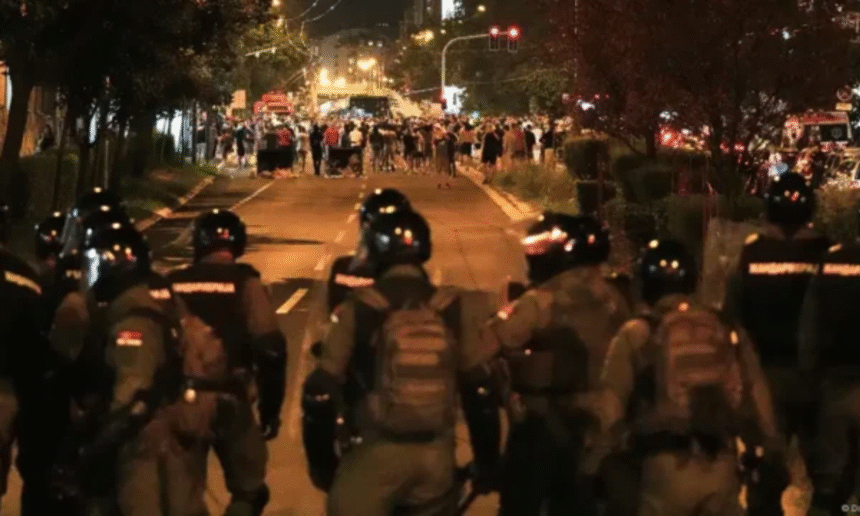The situation in Serbia remains tense: daily reports emerge of police violence against demonstrators, arrests, and allegations that the government of the Western Balkan country is employing criminal gangs against its own civilian population.
Since the collapse of a railway station canopy in the northern city of Novi Sad in November 2024, which killed 16 people, protests against the Serbian government have continued unabated. The demonstrations were peaceful for a long time – but in recent days, violence has escalated in the streets of the capital Belgrade and other cities. Right-wing populist President Aleksandar Vučić now seeks to act even more harshly against protesters.
The EU Ambassador to Serbia, Andreas von Beckerath, issued a statement calling on “all parties to de-escalate tensions.” Any suspicion of excessive use of force by the police must be properly investigated.
Asked by DW, the European Commission said it is closely monitoring the situation in Serbia. Its position is clear: “The right to peaceful protest and freedom of assembly must be respected, and authorities must protect participants from harm or violence,” said Commission spokesperson Guillaume Mercier. Yet for many politicians and observers, these statements fall short. For months, they have called for a firmer stance against the Serbian government and President Vučić.
One such critic is MEP Tonino Picula, the European Parliament’s rapporteur for Serbia. Speaking to broadcaster N1, he criticized Brussels for not adopting a more unified and critical position: “Unlike in Ukraine, the necessary unity to exert pressure is missing here. The EU currently lacks both the motivation and the capacity to act differently toward Vučić’s regime,” Picula said.
Analysts argue that strategic interests are also at play: in 2024, the EU signed an agreement with Serbia securing access to Serbian lithium. Additionally, Serbia has skillfully leveraged its ties with Russia. According to Antigona Imeri of the Centre for European Policy Studies (CEPS), the EU’s soft approach has failed: “Brussels must urgently adopt a different tone.”
Yet despite the latest escalation of violence, the EU continues a “business as usual” approach toward Serbia, refraining from directly holding the government accountable. “Geopolitically this may be understandable, but it risks undermining the EU’s core values,” Imeri warned.
Public trust in the EU is already fragile: in a Spring 2025 IRI poll, only 40% of Serbians said they would vote in favor of EU accession, while over half doubted Brussels’ genuine interest in Western Balkan enlargement.
Other experts, however, urge caution. Nina Vujanović of the Bruegel think tank said: “It is too early to judge the EU’s stance. Brussels has signaled it is monitoring the situation and should continue to do so.” Instead of applying pressure, she argued, the EU should focus on economic incentives, as Serbia’s economy is already heavily tied to the EU – over 60% of Serbian exports go to the EU, and more than 60% of foreign direct investment comes from EU countries.
Economic leverage remains the EU’s strongest tool: Brussels has pledged €1.6 billion to Serbia by 2027, linked to reform commitments. “The EU could withhold or delay funds if Serbia fails to meet its obligations,” Vujanović explained.
So far, however, Serbia – an EU candidate since 2012 – has shown little progress on the reforms required for accession. A July EU report on the rule of law in Serbia highlighted ongoing political pressure on the judiciary and civil society, as well as growing concerns over journalists’ safety.
These issues lie at the heart of why students and citizens have taken to the streets for months, despite the risk of arrest or injury by police. Should violence continue, Brussels may soon face mounting pressure to adopt a clearer and firmer stance toward Belgrade.







